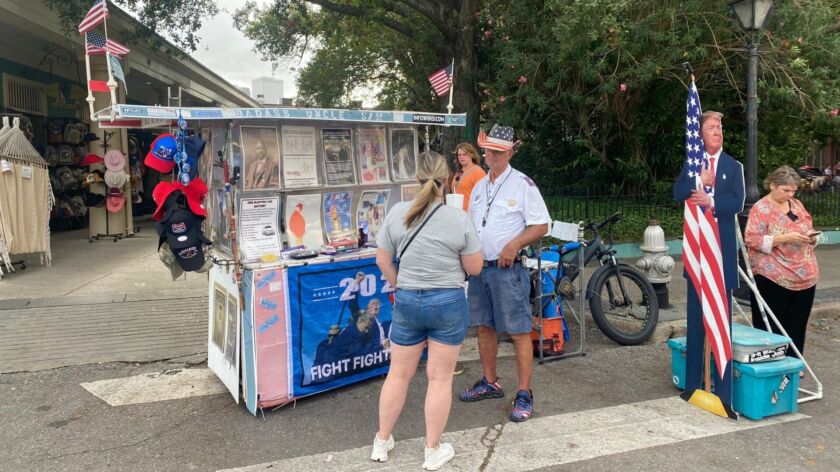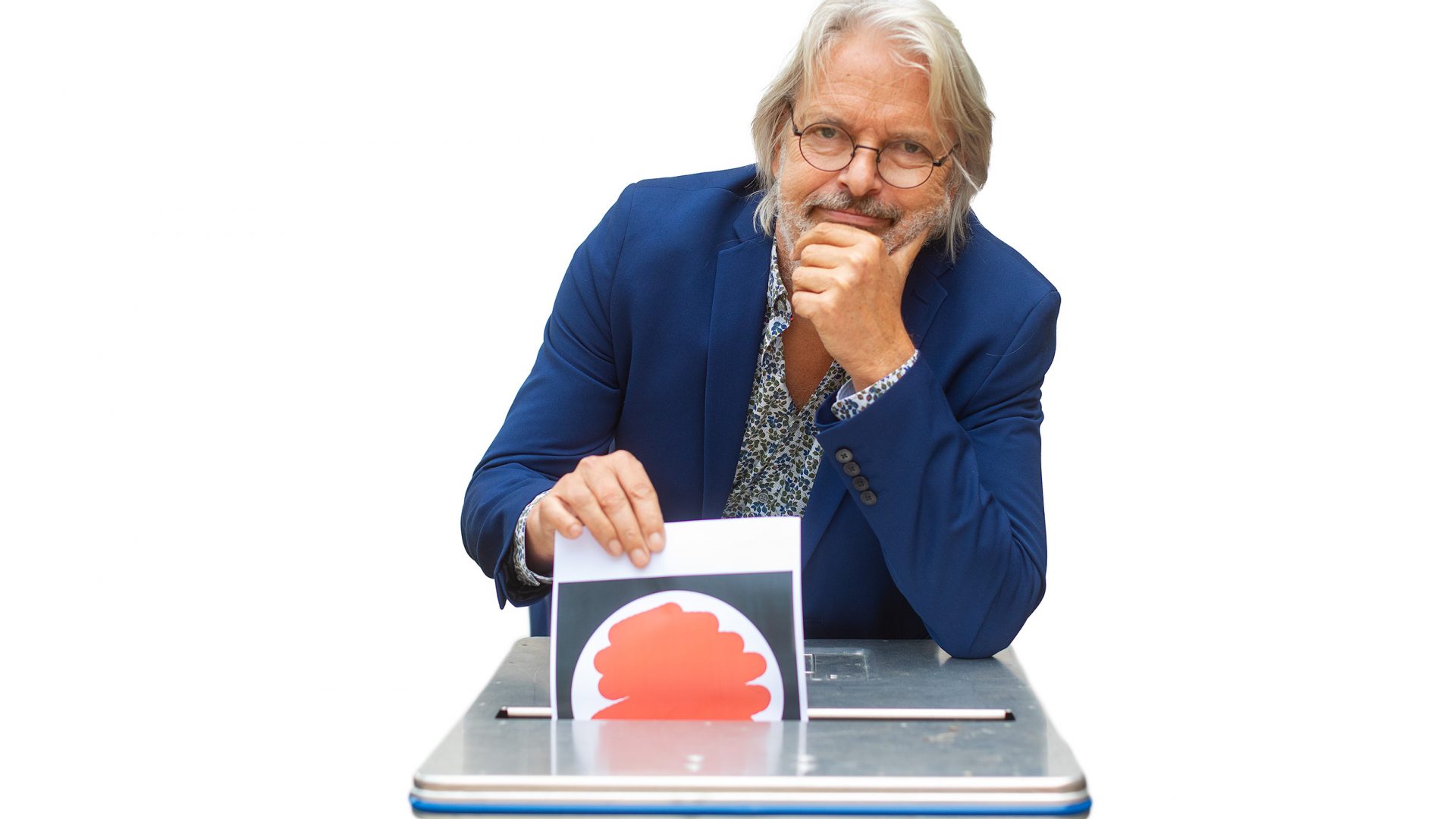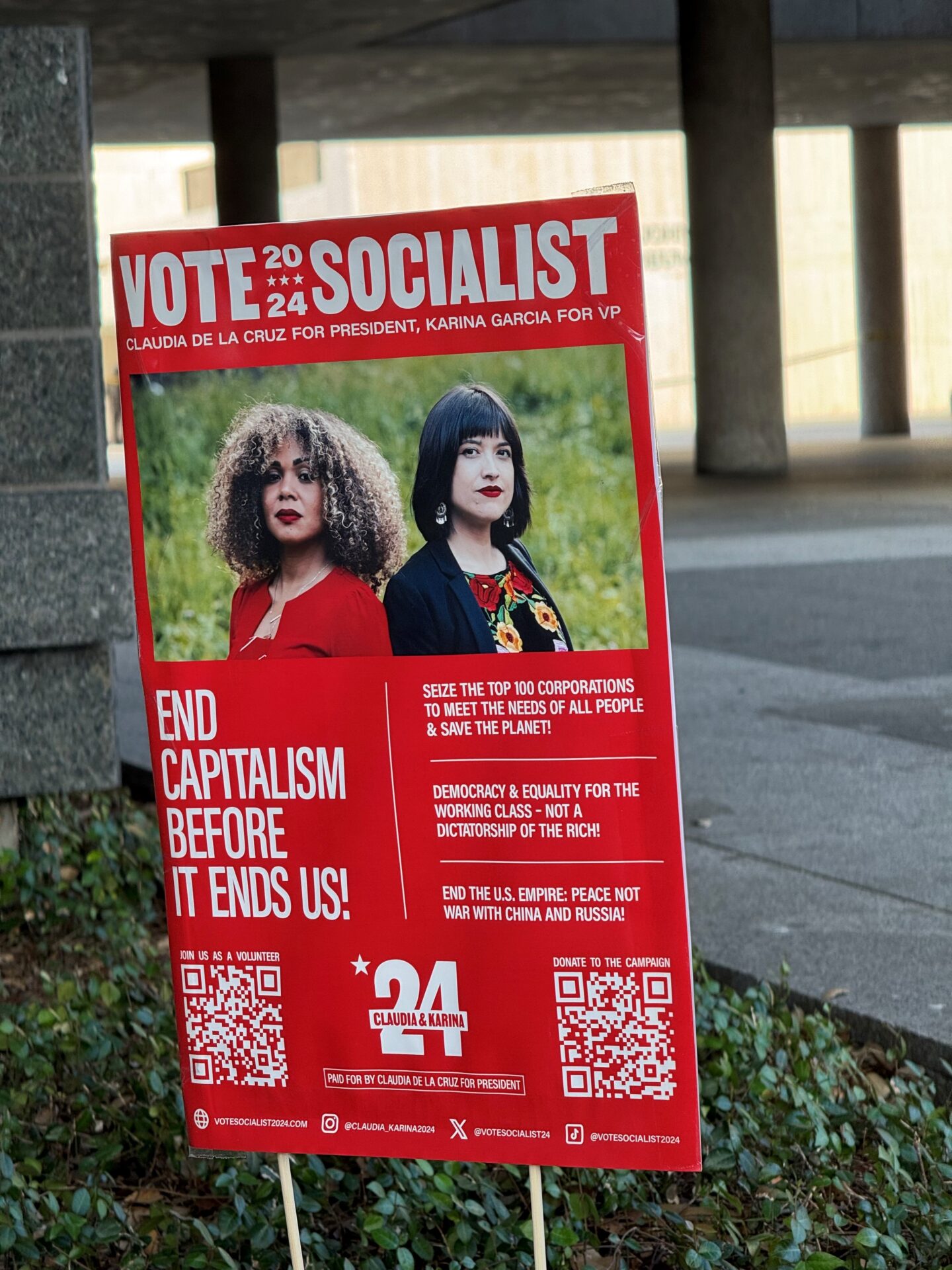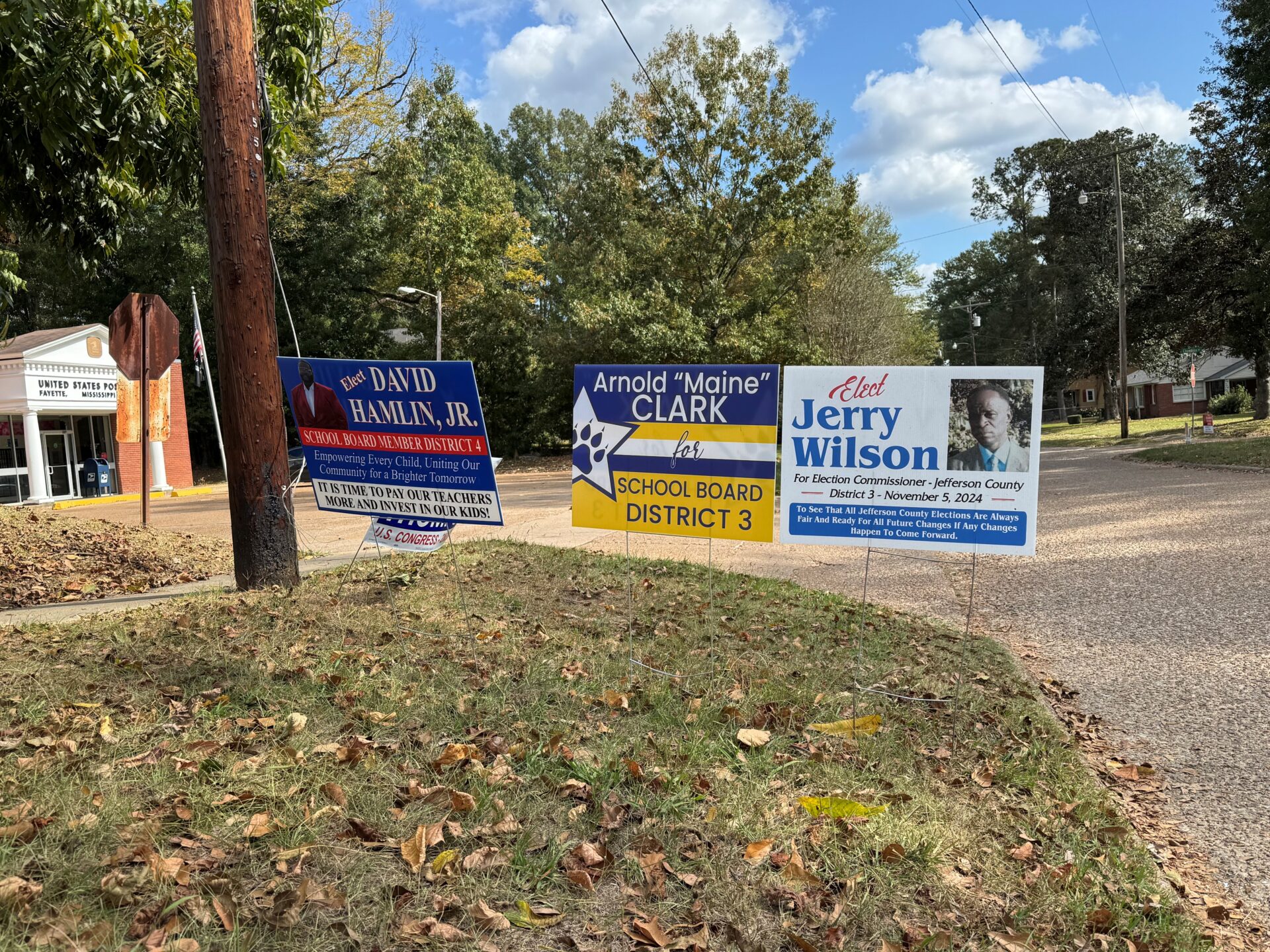In the Deep South, it is easy to forget that it is election time (as long as you don’t turn on the TV)
-
Foto: Peter van der Heiden
Who will be the next president: Donald Trump or Kamala Harris? The average US citizen does not seem to care, notes parliamentary historian and America expert Peter van der Heiden on a trip in the Deep South of the United States. ‘In the average town, you see more advertisements for the local real estate agent than for a presidential candidate.’
It’s something I’ve done every four years for a while now: take a road trip across the United States around election time. I’ve toured Florida several times in the run-up to Election Day, and one time I travelled through Pennsylvania, New York State and Washington DC, among others.
But now, for the first time, I am actually there on the ‘Tuesday after the first Monday in November’, as the election date is determined by law in this country. And so I find myself, in the company of my wife (who has also become a bit America-crazy) and five of our friends, all of whom we have infected with the US virus, deep in Trump Country. Texas and the Deep South – I had braced myself for a tsunami of Trump posters. An unnecessary precaution, as it turns out.
Long list of candidates
What is striking, especially compared to my previous trip, in 2016 (the 2020 edition fell through due to the Covid-19 pandemic), is that there are hardly any election signs along the roads. Eight years ago, we drove through a sea of blue signs bearing Trump’s name and promising that he would make the country great again, and we were frequently overtaken by pick-up trucks sporting large ‘Make America Great Again’ flags. Signs of Trump’s opponent, Hillary Clinton, were rare, except for a very large one proclaiming ‘Hillary for Prison’.
There are just far fewer of these kinds of signs now, neither in favour of Trump or Harris, nor against them. Some street corners are covered with election posters – but not for presidential candidates. In this country, every office with even the tiniest little bit of public law-making power is elected at every level (federal, state, county, municipality) so there is a long list of candidates as well as campaigns – because for almost every office, there is also both a Democratic and a Republican running candidate.
So in addition to the president, people elect the House of Representatives, as well as part of the Senate, but also the state, county and municipal assemblies and often the governor, sometimes the state’s interior and justice ministers, state and county-level judges, the sheriff, the school board, and so on. My all-time favourite instance of this was in Florida: an election for the Mosquito Control Board (yes, you read it right: mosquito control). Apparently, there is a Republican and a Democratic way to get rid of those nasty critters, because elections were being held for it along party lines.
‘Is this perhaps a region where there is traditionally very little visible interest in the presidential campaign?’
The most fascinating example this year was what I would call the meta-election for Election Commissioner in a county in Mississippi – because, of course, the supervisor of the elections must also be elected. And you can also have referendums for amendments to the state constitution on the ballot paper, for example for preserving the right to abortion. All these things are being campaigned for, with election signs in gardens and along roads. All these things, yes, but the presidential elections: not so much. In the average town, you see more advertisements for the local real estate agent than for a presidential candidate.
Arnold Schwarzenegger
This lack of signs is the biggest mystery of my trip so far. Could polarisation have increased so much in the intervening eight years that people are less willing to stand up for their opinions? But that is contradicted by the bevy of signs for Ted Cruz in Texas, a senator who is perhaps even more polarising than Trump. Is this perhaps a region where there is traditionally very little visible interest in the presidential campaign?
Or is this a case of what Arnold Schwarzenegger, former governor of California and as such formerly prominent member of the Republican Party, described on X as being ‘completely fed up with “politics” but yearning for ‘policy’’? No more political games that only benefit politicians, but policies for Americans, he wrote – and pointed to Trump as the main culprit of the former (which is why, he said, he would not vote for his party’s presidential candidate, but for Harris).
In any case, we do not see much enthusiasm among the few Americans who are willing to discuss politics. While news reports from the Netherlands make it seem like everyone here only talks about Trump versus Harris, and supporters on both sides are almost coming to blows, the average US citizen hardly seems to care. They seem tired, battered by over eight years of political verbal abuse and incitement, jaded by untrustworthy (or seemingly untrustworthy) politicians, and ready for something different. Ready for something new.
The only problem is that nothing about this election looks new. Trump has dominated the political climate for over eight years, and Harris is part of the Democratic status quo. Love for one’s own candidate seems to be mainly determined by disgust for the opponent. No one talks about policy, not even on the streets.
Experienced migration crisis
One major exception is a volunteer at a mission museum in a village near El Paso, right on the border with Mexico. Pretty much the entire village is voting for the Democrats, she says – fed up as they are with the lies about massive streams of refugees. She does not see them. Well, every now and then, a single refugee makes their way to the fence, and is then politely let through by the border guard and taken through the asylum procedure.
‘There is no refugee problem at all at the moment’
Those images of massive problems at the border? ‘Look at what those refugees are wearing. Jumpers, coats – these are images from the winter, a few years ago, but they keep being pulled out again and again for political gain. There is no refugee problem at all at the moment.’ Not only her own village, but also El Paso is predominantly Democratic, she claims – and the few election signs we see seem to confirm this. It looks as if the US is also caught in a ‘perceived migration crisis’ that is not so much based on facts as on emotion.
Country festival ball
In Stonewall, Texas, we visit the birthplace of Lyndon B. Johnson, the Democratic president who, with his civil rights legislation, personally made sure that the South turned its back on his party and became the power base for the Republicans. Here too, the few election posters we see pretty much balance each other out.
A little more Trump, and with a little more enthusiasm: the average Trump supporter is not satisfied with a modest sign, but has to add at least one giga-MAGA flag. At a small country festival next to LBJ’s ranch, politics seems far away – but so does diversity. Five white cowboys are playing music. Although the atmosphere is friendly, it doesn’t really feel like a place where Harris will get many votes.
Afterwards, one of the visitors tells us that he will be voting for Trump after all. Not because he thinks the Republican candidate is so great in terms of content, but because of his unpredictability. Kamala Harris is far too polite, and unlikely to make an impression, he says. In this she is very different from Trump, whom the world will respect and fear – apparently he has already forgotten how hard people laughed at Trump’s appearance at the United Nations. Would he still feel that way after Trump’s appearance last weekend, when which he simulated oral sex with a microphone, thus reviving rumours about his mental health? Or does he watch one of the channels where that part will not be aired at all?
Preaching to the choir
Because this remains a bizarre fact about the US, that you get completely different information on different ‘news channels’, and that these channels seem to be the only place where the elections are really alive. While Fox is going wild over President Joe Biden’s comment that MAGA supporters are ‘garbage’ and keeps broadcasting the same footage of Trump driving around in a rubbish truck, MSNBC treats its viewers to a compilatio nof all the times Trump called Democratic supporters ‘scum’ or ‘garbage’.
‘The two camps keep each other nicely in balance in their isolation and dislike of each other’
It’s all preaching to the choir, but as a result, the choir in question is getting extremely one-sided information. So Harris can keep harping on about the danger Trump poses to women’s rights and call him a fascist all she wants, the odds of this message, other than in an outraged form (look what those Democrats dare to say about us!), reaching the Republicans are minimal. And vice versa, of course, as the two camps keep each other nicely in balance in their isolation and dislike of each other.
Swing states
On Tuesday night, election night, I will be at the Democratic Party in Nashville, Tennessee, at what they themselves somewhat prematurely proclaimed weeks ago as the Victory Party. And it really could be a victory party, but whether you believe that depends once again on which channel you watch and who you follow on X.
The Democrats are convinced that victory cannot elude them and that the polls showing otherwise have been heavily manipulated by fake polls by Republicans, while the latter point to Trump’s supporters being underestimated in previous elections and are therefore sure he will win – if the election is not rigged again, of course. While the Democrats rejoice in the fact that early voters overwhelmingly claim to have voted for Harris (in Pennsylvania, the difference is supposedly more than 25%), the Republicans point out that there are more early voters from their camp than four years ago. And all of this is neatly broadcast on ‘their’ channels, and taken for granted by their supporters.
I still expect a Harris victory, but more based on a gut feeling than on hard information. Harris could just pull in all the swing states, thus pulling off a monster victory in the Electoral College. But things could just as easily go the other way. With elections where the difference can be as small as a few thousand votes per state, it is all about mobilising voters. ‘Boots on the ground’ is what they call it here – and Harris’ army of volunteers is many times larger and more active than Trump’s.
They will spend two more days calling, ringing doorbells and putting up flyers, all to get their own supporters to the ballot box. Whoever does a better job will win the presidency – although Joe Sixpack (the local equivalent of Jan Modaal) is more concerned about local elections than the race to the White House. Perhaps not unwisely, as the sheriff, or even the mosquito board, may well have more influence on their day-to-day life than the president.









